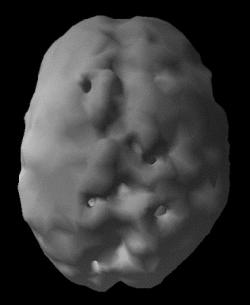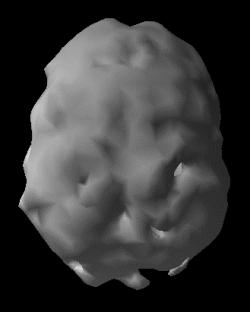Supplement and Medication Management
Learn how supplementing your diet with high quality, naturally derived nutrients can powerfully promote healing and boost your overall health.
What is Supplement & Medication Management?
At Amen Clinics, we follow a simple guiding rule: use the least toxic, most effective treatments. The Amen Clinics Method takes a whole brain-body approach to treatment and personalizes solutions to treat all of the factors that may be contributing to your symptoms.
In making treatment recommendations for our patients, we always keep these principles in mind. First, do no harm. Use the least toxic, most effective, science-based treatments. Then, consider short-term pain versus long-term gain (don’t fix one problem just to cause another one). Do not start something a patient will have a hard time stopping (withdrawing from many anti-anxiety or antidepressant medications can be very hard) just to deal with the anxiety of the moment. Finally, nutraceuticals or medications should never be the first and only thing people do. Read on to learn more or contact us at the link below.
Contact Us
Why Choose Amen Clinics for Supplement & Medication Management?
At Amen Clinics, we use brain SPECT imaging to evaluate the health of your brain and identify areas that would benefit from optimization with supplements and/or medication. When it comes to optimizing your brain, one size does NOT fit all. Our brain imaging work has shown that there are different types of mental health conditions (7 types of anxiety and depression, 7 types of ADD/ADHD, 6 types of addicts, and more) as well as multiple brain types (we have identified 16 brain types). Treating everyone who has anxiety, depression, ADD/DHD, addiction, or other conditions with the same supplements and medications will never work. Based on your brain scans and brain type, we develop a personalized supplement and/or medication plan for your needs.
The Importance of Brain Imaging in Supplement and Medication Management
In traditional psychiatry, there is a major flaw when it comes to prescribing medications and nutraceuticals—they are generally recommended based on symptoms, rather than biology. At Amen Clinics, our experience shows that treatment with nutraceuticals and/or medications is much more effective when we add the biological information from our brain imaging work.
Brain imaging helps:
- Target solutions to your needs more effectively
- Predict how you will likely respond to certain medications or supplements
- Show if treatment is working or if it needs to be adjusted
Our brain SPECT imaging work—which includes over 200,000 brain scans of patients from over 155 countries—also shows that certain medications have a negative impact on overall brain health. For example, benzodiazepines for anxiety and opiates for pain are clearly associated with unhealthy looking scans.
Toxicity on Surface SPECT Scans of Some Medications

Benzodiazepines

Opiates
Ready to learn more? Contact a care coordinator today!
Contact UsPros and Cons of Medications
At Amen Clinics, we are not opposed to medications for your mind and prescribe them when necessary. However, we are opposed to medications being the first and only thing you do to help your brain and your mind. When carefully prescribed and monitored, medications can have a life-changing (and sometimes life-saving) effect. Understand that when medications are prescribed, we also recommend the support of nutraceuticals to help you get better faster.
Based on three decades of experience, Amen Clinics has compiled the following list of pros and cons of medications for your mind.
Pros
- For more serious psychiatric conditions, such as schizophrenia, true bipolar disorder (we say “true” bipolar because it is often diagnosed in people who have the lasting effects of traumatic brain injury), severe major depression, and OCD, medications are often the most effective and fastest-acting treatments.
- For ADHD, stimulant medications work quickly and can be very effective, if they are given for the right type of ADHD. Stimulants work for two of the seven types of ADHD.
- Prazosin (Minipress—a blood pressure medication) is often an effective, quick-acting, safe treatment for nightmares in people with PTSD.
- Physicians are trained in using medications for psychiatric disorders, so they are used to prescribing them, and they are a part of regular medical practice.
- Medical insurance plans often cover them.
Cons
- Mind medications have significantly more side effects than nutraceuticals. Most have a “black box” warning, which is the Food and Drug Administration’s strictest warning associated with the labeling of prescription drugs. It is used when there is reasonable evidence of an association of a serious hazard with the drug.
- They are generally much more expensive than nutraceuticals, but they tend to be covered by medical insurance.
- Once started, many medications are often hard to stop. Withdrawal from antidepressant and anti-anxiety medications can be long and painful.
- Once started, many people feel dependent on them and do not do the work to truly get their brains healthy over time.
- Some medications change your brain, so you then need them in order to feel normal.
- As awful as it sounds, taking prescription medications can affect your insurability. People may be denied or made to pay higher rates for health insurance because they have taken certain medications.
- For ADHD, stimulants that are prescribed without taking into consideration the particular type of ADHD you have can do more harm than good. For example, for five types of ADHD, stimulants can make you much worse.
Pros and Cons of Nutraceuticals
Some people wonder if they need to take nutritional supplements if they are consuming a healthy diet. It’s important to understand that due to food industry practices, the vast majority of foods today contain fewer nutrients than before. In addition, many people have compromised gut health that reduces their ability to absorb the nutrients that are consumed. Because of this, supplementing your diet with high-quality, naturally derived nutrients can powerfully promote healing and boost your overall health. Even though they have limitations, the benefits of nutraceuticals compared with their minimal risks make them worth considering, especially if you can get thoughtful, research-based information. There are 3 supplements we typically recommend to all of our patients because they are critical to optimal brain function: a multivitamin, omega-3 fatty acids, and vitamin D.
Based on more than three decades of diving into the research on nutraceuticals to help the brain and using them in our clinical practice, Amen Clinics has compiled the following list of pros and cons of nutraceuticals for your mind.
Pros
- They are often effective when prescribed properly.
- They have dramatically fewer side effects than most prescription medications.
- They are significantly less expensive.
- You never have to tell an insurance company that you have taken them, so it will not affect your insurability.
- When people start to take supplements to optimize their health, they often start to engage in other healthy habits.
Cons
- Insurance usually does not cover them.
- Many people are unaware that nutraceuticals can have side effects when used improperly.
- One of the major concerns about nutraceuticals is the lack of quality control. There is variability so you need to find trustworthy brands. We recommend only nutraceuticals that have been put through stringent quality control.
- Another disadvantage is that many people get their advice about supplements from the clerk at the health food store who may not have the best information, or from secondary sources on the internet. You need advice from healthcare professionals, such as the physicians and therapists at Amen Clinics, who are trained and competent to give you the best advice.
“The unfortunate reality is that current medications help too few people to get better and very few people to get well.”
—Thomas Insel, Former Director of the National Institute for Mental Health



